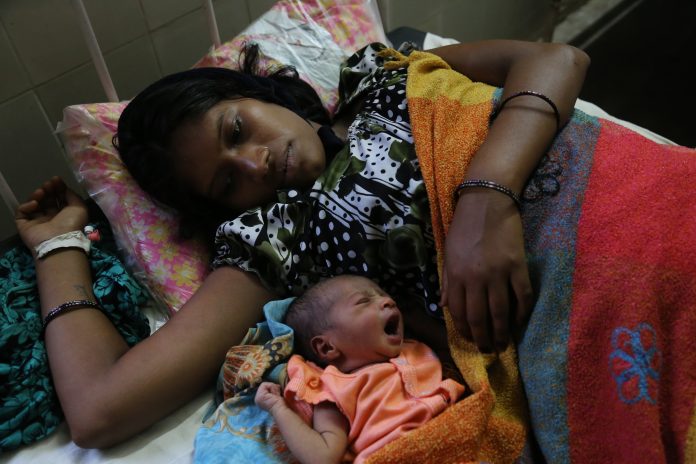IT was a heavy pall of darkness over the family of Citizen James, resident in one of the rural communities in Delta State, when his 27- year old pregnant wife, went into labour at the home of a traditional birth attendant, but unfortunately died in the process of delivery due to birth complications. She died with her baby.
At yet another instance, a pregnant woman went into labour at a private medical facility in one of the cities also in Delta State. Moments after giving birth, complications arose, which took the life of the 35- year old woman. In this case, the baby survived.
The third case happened at a missionary health facility in Delta State. The young lady with her first pregnancy, sensing onset of labour went to the hospital where she registered for antenatal care. The nurses she met on duty were too busy to pay her due attention. In the process of moving around, the baby simply forced its way out of her mother but it was a fatal drop to the floor as there were no motherly arms to receive it. Tried as they could, the baby died at the facility.
The above summations narrate the incidence of maternal and neonatal mortality that unfortunately have become an extremely cause of concern all over the country. The tragedy of mother and baby dying in the process of childbirth is not only traumatic to the besieged family but a thing of grave sorrow to the society. To us, it is quite tragic that the country still suffers from such tragedies in the 21st century.
It’s on account of this longstanding danger that Senator Remi Tinubu, that the wife of President Bola Tinubu, bemoaned the “alarming death rate of women and newborns due to preventive complications during pregnancy, childbirth and the postnatal period…No mother has to risk her life to bring a child into the world, and no newborn should be denied a fair chance of survival.”
Remi Tinubu, who spoke during the World Health Day 2025, advocated a reduction in maternal and newborn deaths in the country, urging significant investment in maternal and neonatal healthcare as a critical step in mitigating the sad occurrences. “On this World Health Day, let us all strive to create a world where mothers can safely give birth and children can live to reach their full potentials,“ she urged.
In Nigeria, the maternal mortality rate is estimated at over 1,000 deaths per 100,000 live births while neonatal mortality rate is estimated at between 35percent to 39 percent per 1,000 live births. Neonatal mortality refers to deaths within the first 28 days of life.
It’s rather saddening that the nation is deprived of young women and children by reason of the foregoing. These could have been huge assets to their respective families, communities and the nation over time.
Key variables contributing to the sad occurrences, according to findings, include limited access to skilled birth attendants; inadequate healthcare systems in mostly rural communities, home to some 70 percent of the population; poverty and unemployment; insecurity and conflicts nationwide; professional negligence on the part of trained and qualified healthcare personnel in the management of pregnant women; and to a large extent lack of appropriate healthcare personnel in existing hospitals and healthcare centres across the country where the birth rate is in geometric proportion.
While we acknowledge that over the years governments at national and state levels have initiated and implemented commendable policies targeted at improving the healthcare of pregnant women and infants, for instance, as being done in Delta State via public health facilities, there is still a huge gap in meeting the health needs of expectant mothers and their babies.
The health challenge therefore calls for huge investment in developing the necessary health infrastructure, as canvassed by Remi Tinubu, across the 36 states and the Federal Capital Territory. Moreover, access to trained and skilled nurses and midwives should be prioritized to vastly improve antenatal care while mass public enlightenment on family planning should be reactivated and sustained to deal with the issues of child spacing and contraceptives.
Furthermore, women even while yet single should be socially and economically empowered through various programs to make them financially independent and free from the scourge of poverty, which often militate against their need for better medical care. In all of the above strategies, it is our esteemed view that the federal and state governments should be the drivers.


